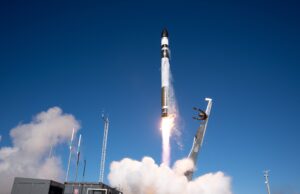Ispace: Lunar operations have reached an industrialization phase
10th May 2024
Japanese lunar economy company ispace released their full-year 2023 financial report. On 10th May, they held a press conference to cover the numbers, but also to discuss their vision for the developing lunar economy and mission plans going forward.
Mission 2 is expected to launch in late 2024 or early 2025. However, because their hardware performed as expected during Mission 1, ispace has chosen to build three landers in parallel. Doing so enables lessons learned from each mission to be incorporated quickly. Generating innovation in the lunar space industry is something the company feels very strongly about, and keeping a quick tempo is seen as part of that effort. By 2027, ispace hopes to have 2-3 launches per year. The company is sure of its hardware, as the hardware on the M1 mission did perform as expected.
Evolving demand
The type of payload is expected to change as well. Currently, ispace sees a demand for delivering demonstrator payloads. This is expected to change over time to build out the different sorts of infrastructure that will be needed to maintain a human presence there. Then, in about 10 years, as is currently envisioned, companies will start breaking out into solutions for other fields.
While lunar-oriented operations are increasing, there are nuances. Currently, ispace see the primary clients as more often than not to be governmental ones, even when NASA is taken out of the picture. That said, interest from private companies and academia has been present since the beginning. Hakamada noted that both the already-flown M1 mission and the upcoming M2 mission involve commercial and academic payloads.
Among the developments ispace drew attention to is the developing hydrogen value chain. Transport contracts for the demonstrators are already signed with ispace for electrolysis devices, and the company sees lunar water as a $2.4 billion per year segment in the lunar economy.






Thank you for your comment! It will be visible on the site after moderation.